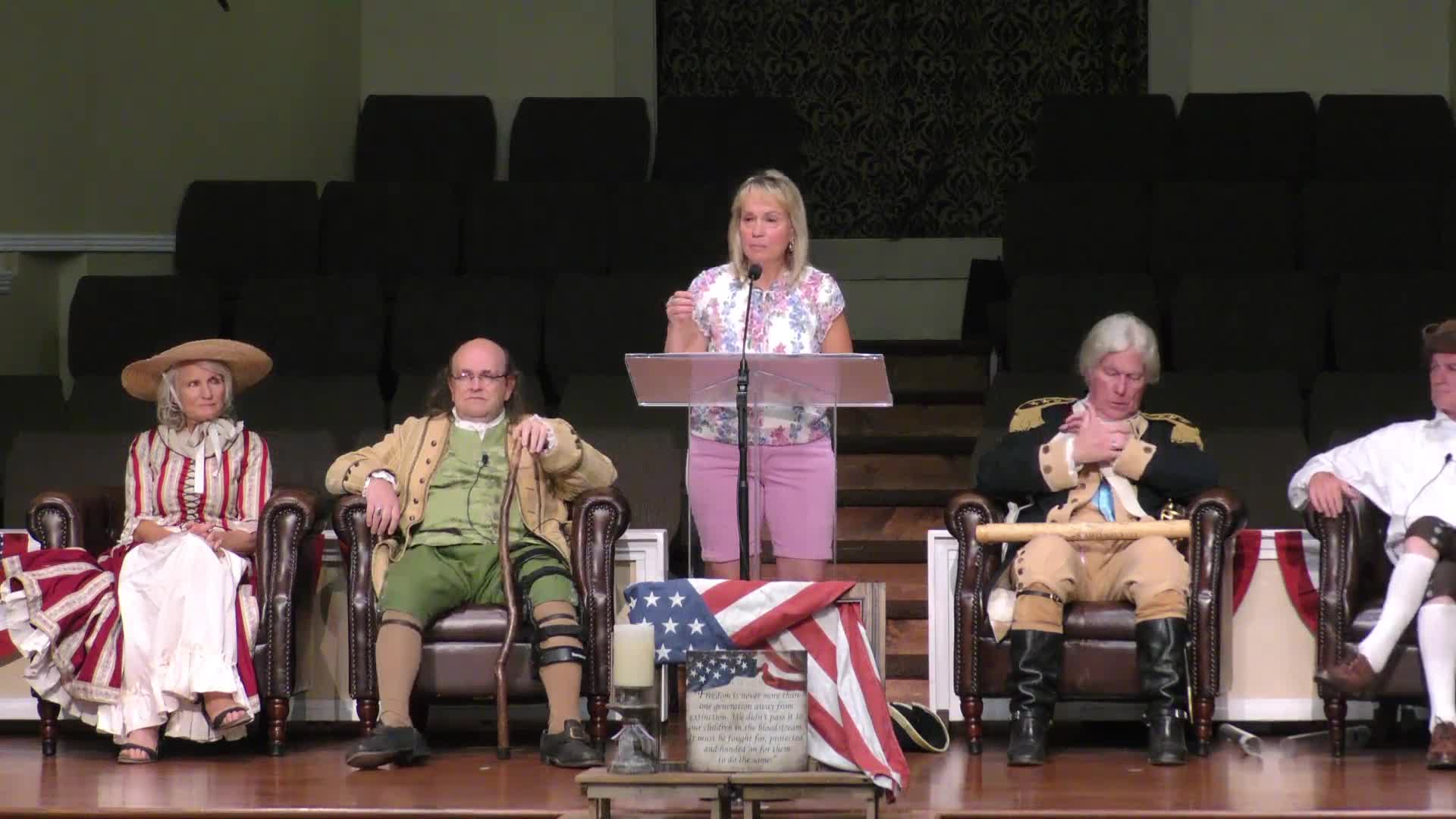Article not found
This article is no longer available. But don't worry—we've gathered other articles that discuss the same topic.
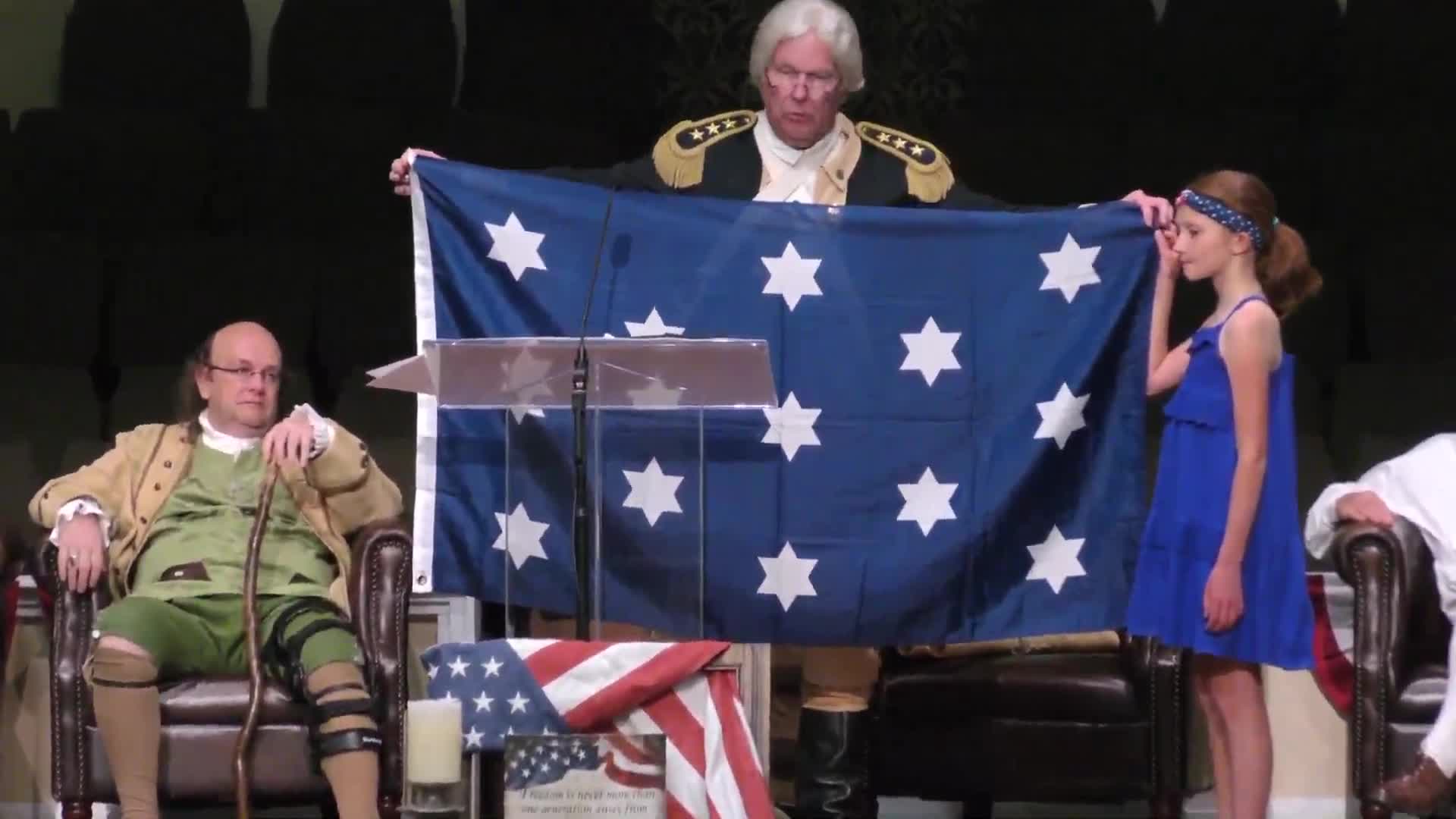
Performer portraying Ruth Harrington recalls Lexington alarm and sacrifices in colonial-era presentation
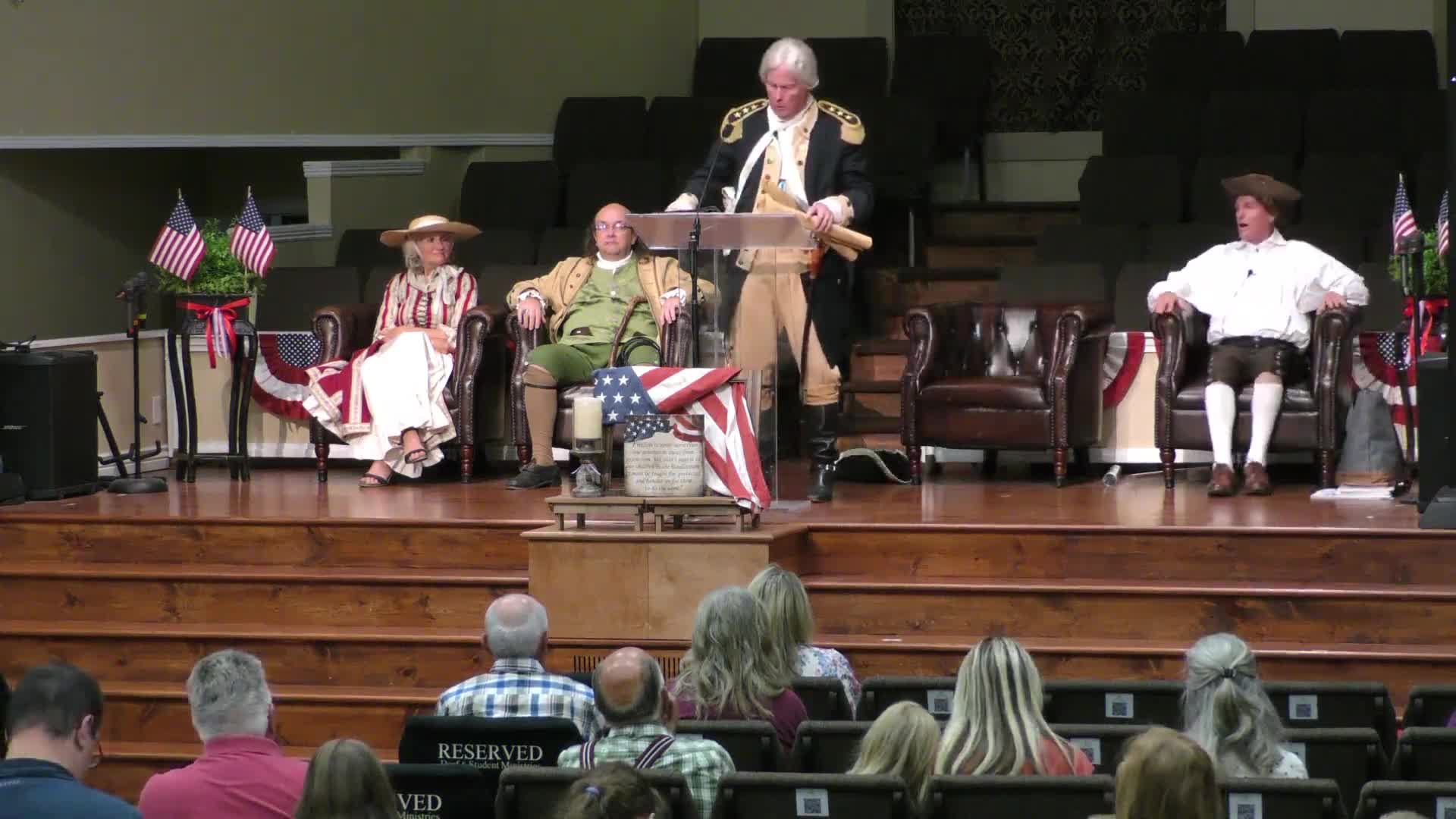
George Washington reenactor emphasizes religion, civic duty and Farewell Address themes
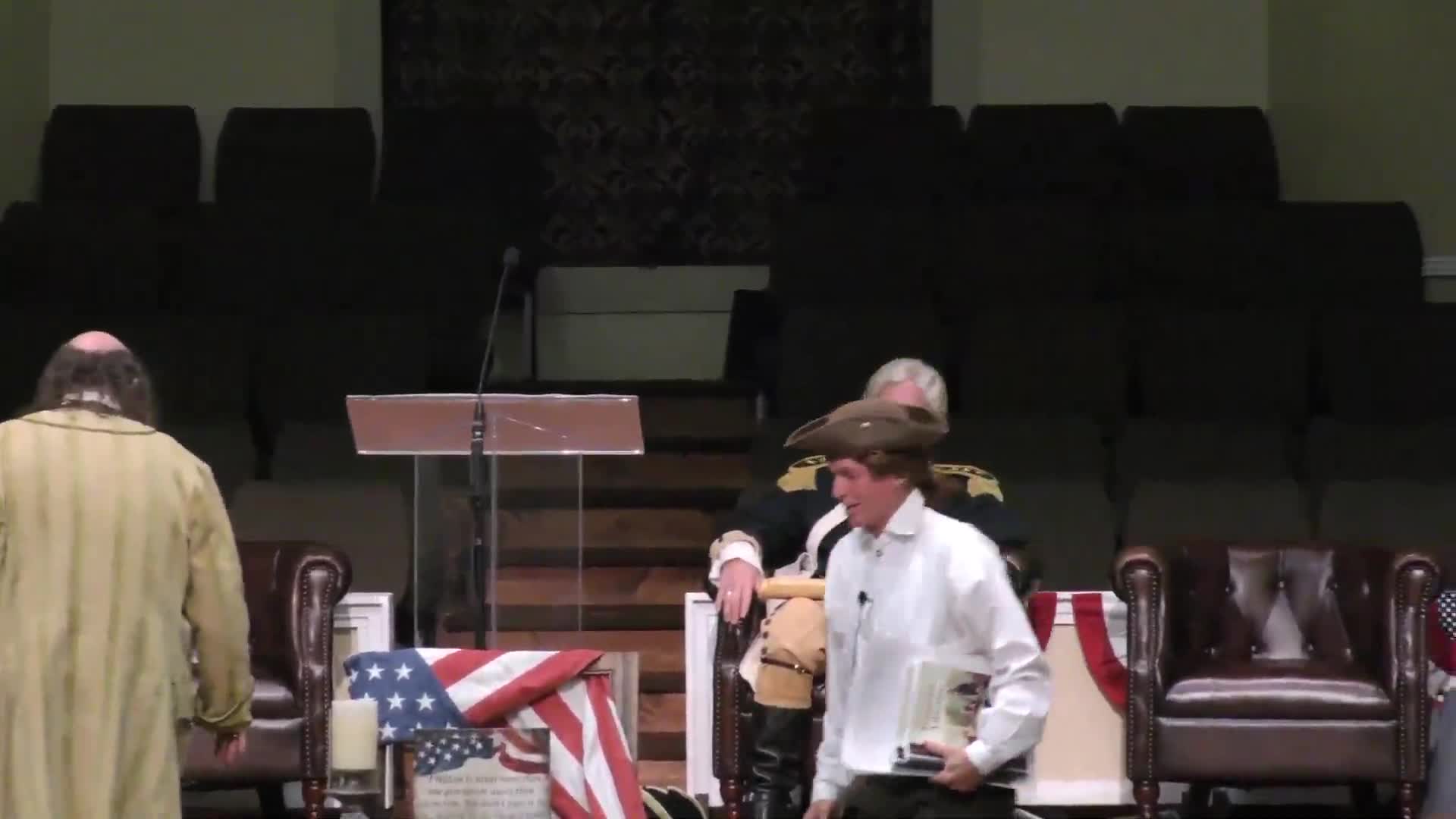
George Mason reenactor highlights Virginia Declaration of Rights and Bill of Rights role
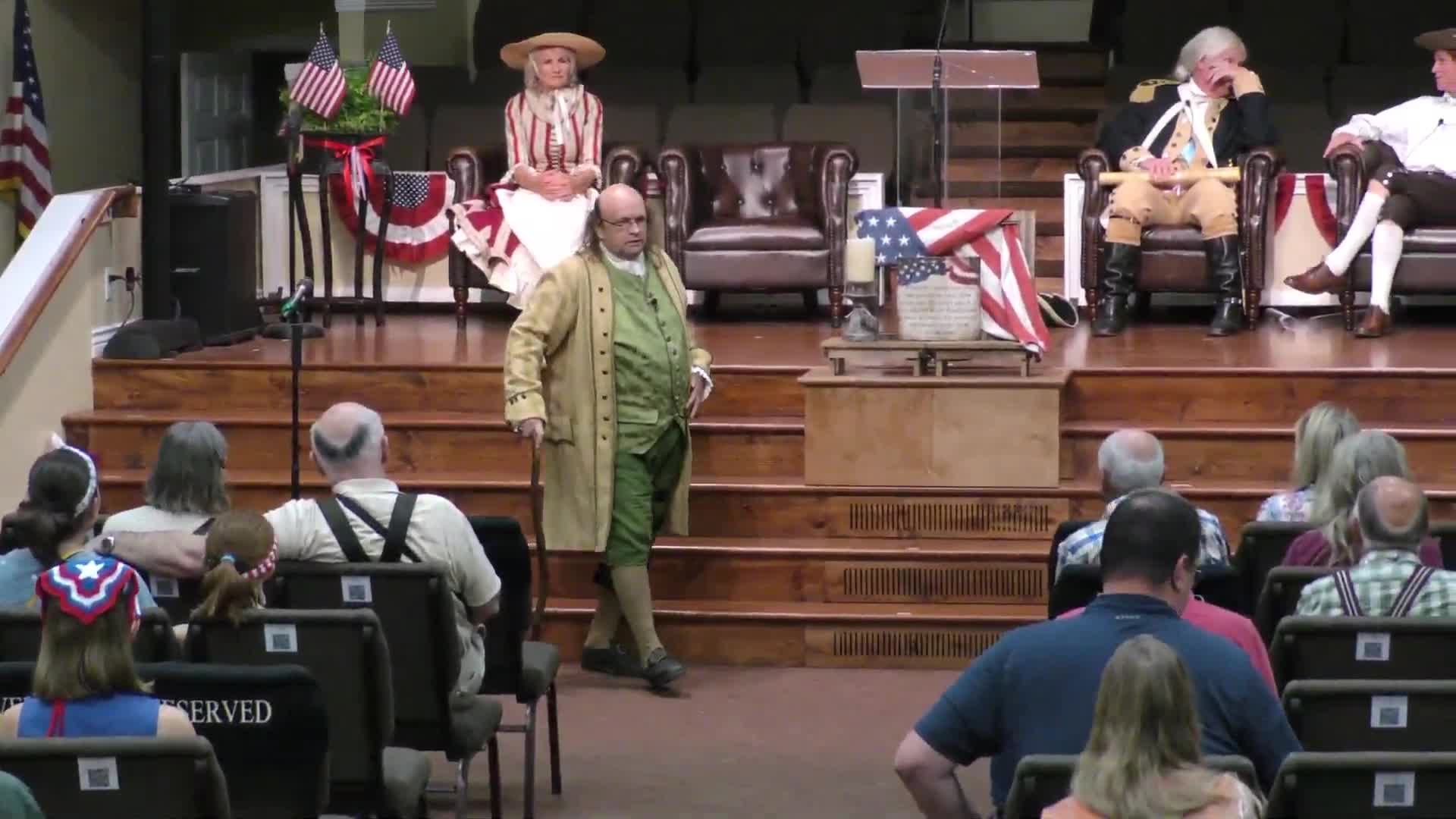
Ben Franklin reenactor recounts inventions, diplomacy and role in independence at Layton program
